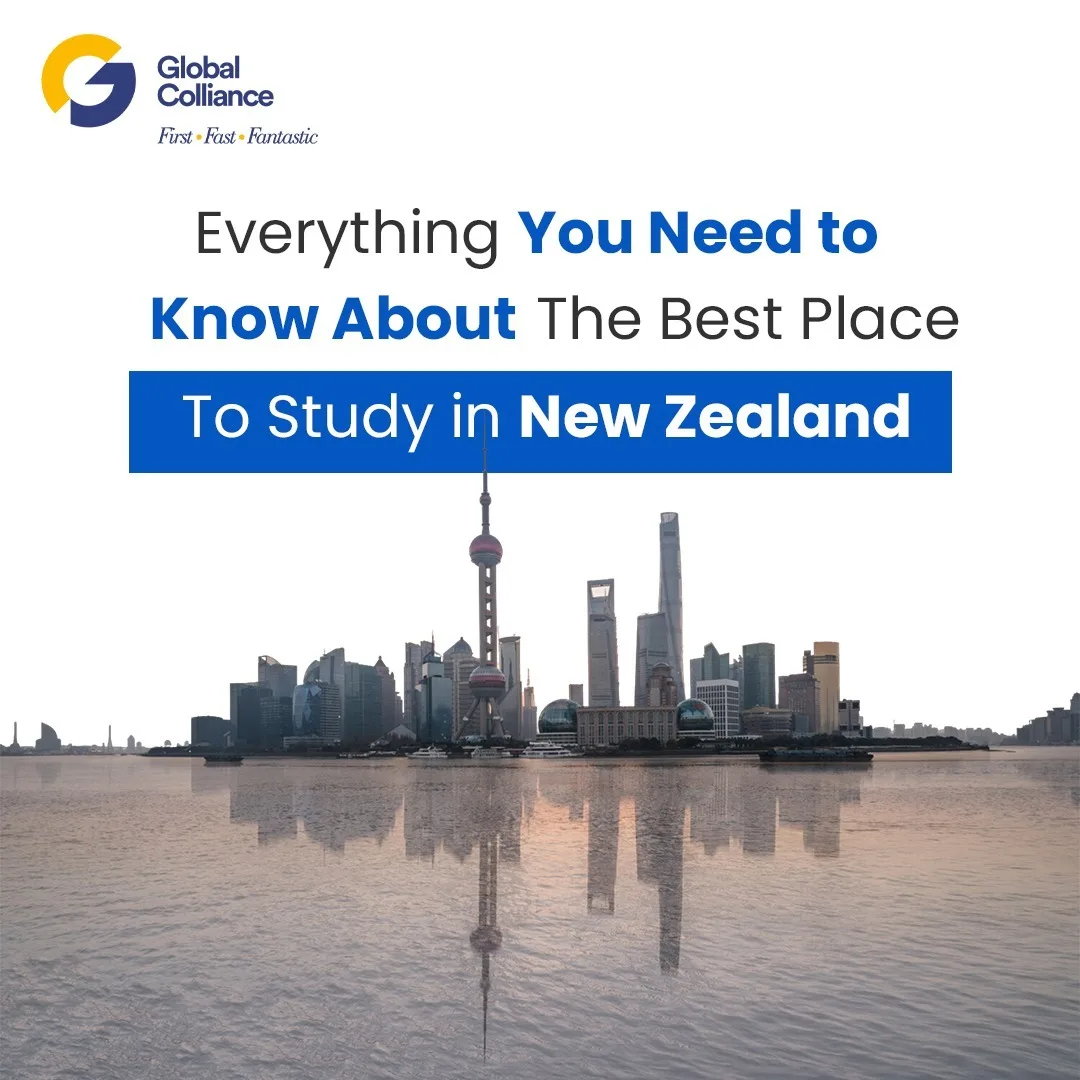- Home
- Blog
What is the Step-By-Step Process To Go Abroad For Higher Studies?
- Home
- blog
What is the Step-By-Step Process To Go Abroad For Higher Studies?
While studying abroad is the best prospect to broaden your knowledge, it is crucial to take a step-by-step process to choose the best suitable options
Studying abroad is one of the best experiences to excel in life, and it is full of excitement, challenges, and empowerment. However, it is a long process, and missing one step in between could complicate the admission process. Global Colliance has a team of experts with 10+ years of experience in the industry that helps students build their future.
Are you planning to study abroad but unsure about the process? Indeed, the process of studying abroad is tricky and the process can sometimes be intimidating when the students don’t know how to begin.
Global Colliance has prepared a comprehensive step-by-step process to go abroad for higher studies that might help the students to plan for study abroad hassle-free
- Decide and Research About Your Course/Program
The first important step toward studying abroad is deciding which course or program you want to pursue. Tuition fees for Bachelor’s Degree, Special Course Programs, or Master’s programs vary, but there is always something that fits everyone’s budget.
Do well research about your courses and the countries that offer the courses. In different countries, colleges/universities offer various lengths of courses. For instance, a US University usually offers four years of bachelor’s degree, while a UK University usually offers three years of course. Similarly, a Master’s Degree in the US generally takes two years, while UK Universities offer one year programs as well.
- Meet Study Abroad Counselor and Select Course, College/University, and Country
Studying abroad is a huge step toward living in a different country and learning in a different environment. Even though you can get every detail on the internet, meeting a study abroad counselor is advisable to know more about the country and courses. In addition, some classes take place full-time and some part-time.
Each course has a specific curriculum, various sub-degree includes, and has a different academic goal. For instance, if you are interested in a Psychology course, various universities teach Psychology under Bachelors of Arts like McMaster University, Canada, while others mention it under Bachelor of Science like the University of Alberta, Canada. Though the course is Psychology, both the Bachelor’s Degree Arts and Science have different requirements.
Global Colliance has a team of expert consultants who help students choose a program according to their academic merit, budget, and academic goals.
- Preparation for Test — IELTS, TOEFL, PTE, GMAT, or SAT
Once the students decide on their courses, college/university, and the country they wish to study abroad, they need to pass an English language test (anyone)— IELTS, TOEFL, PTE, GMAT, or SAT to prove their English proficiency. This English language test is compulsory for students from countries where English is not their main spoken language and traveling to a country where English is the primary language.
Undergraduate Colleges/Universities in the UK, the USA, Canada, Australia, and New Zealand accept IELTS (International English Language Testing System) for admissions. Various programs require a different IELTS score.
Global Colliance provides coaching for IELTS, PTE, UKVI IELTS, etc. where the batch size is kept small to ensure personalized attention for each student and mock tests are conducted every week to track progress and scope of improvement.
- Submit Online Application
Once the student clears the IELTS exam, the next step will be applying for the university/college program. One can apply to more than one university/college; however, one needs to keep in mind that international students can apply to a limited number of universities/colleges in some countries.
Processing the application through the Global Colliance makes it easier for the students, as we are affiliates with 400+ universities/colleges across Canada, UK, US, New Zealand, Australia, Germany and France.
- Assistance for Education Loans or Scholarships
After the application submission, there will be enough waiting time as colleges/universities accept more than a thousand applications in a day. Meanwhile, it is time to discuss education finance. How do you wish to finance your studies? Do you want to proceed with the education loan? Do you master one skill that can benefit you from scholarships?
Global Colliance assist the students to get a best financial help with ease.
- Acceptance Letter — Secure Admission
There is a chance that the students get the acceptance letter from all colleges/universities to which they applied. But, it is best to pick one college/university which fits all your academic goals and budget. Once you choose your college/university, in order to secure admission, you need to pay the fees.
Advance discussion about the education finance with the study abroad consultant will benefit in securing admission quickly as every college/university has a limited quota secured for international students.
- Student Visa Procedure
Once admission is secured at the college/university, the student needs to apply for a visa. A Visa application looks simple, but it is one of the most complicated processes as it includes a lot of documentation, and the student is required to adhere to the visa conditions.
At Global Colliance, we help the students to process their visas hassle-free.
- Choosing Accommodation at the Host Country
While the visa is in process, it is a great time to discuss the accommodation. It’s critical to decide where the student chooses to live abroad as it will impact studies and expenses. Some choices are:
- Student dormitories
Accommodation for students in the college/university. The program fees generally include the cost of utilities of the dormitories. This is usually the cheap option as the food and laundry will be available on campus.
- Renting a private space
Accommodation outside the college/university campus. The student needs to take care of everything — food, grocery, electricity bill, gas bill, laundry, house maintenance, etc. Some colleges/universities do guide students who look for private space. This option is usually on the higher side.
- Renting out space with a local family
Accommodation outside the college/university includes staying with a local family who looks to accommodate students and earn some income. Generally, the family takes care of the food and laundry of the students in exchange for a few extra bucks. This option is usually inexpensive plus has a significant benefit of knowing local people and getting an opportunity to learn about their culture.
- Pre-Departure Program and Post Landing Services
The pre-departure programs include insights of the soon-to-be student immigrants on what to expect when studying, working, and living abroad. The program is developed to make the student’s emotional flexibility to adjust to a new habitat and stimulate a sense of concern for the locals. The program has a brief outline of everything one can expect in a host country—various study programs, campus entertainment, part-time working culture, new language, culture, etc.
Global Colliance hosts a pre-departure program for all their students. After reaching the host country, it is essential to adhere to their rules and regulations. Though it does take time to adjust to a new environment and adapt to the new culture, ensure not to hurt anyone’s sentiments.
Global Colliance provides arrival assistance for all the students, and is available when the student needs help.
- Final Thoughts
The study abroad process can be overwhelming sometimes. Based on your program start date, travel to your host country a week or ten days before in order to be familiar with the surroundings and adjust to the climate. You might need to consider booking a private space if you choose to stay on the campus, as various campuses don’t accommodate students 2–to 3 days before the study program starts.
Global Colliance ensures that students choose the best-fit courses and colleges/universities in their desired countries. A team of experts at Global Colliance understand the complexities of the student’s admission and visa application process. Global Colliance always stays up to date with the country-wise regulations.
Visit us on www.globalcolliance.com and get answers to all your study abroad-related queries.
- You May Also Like



